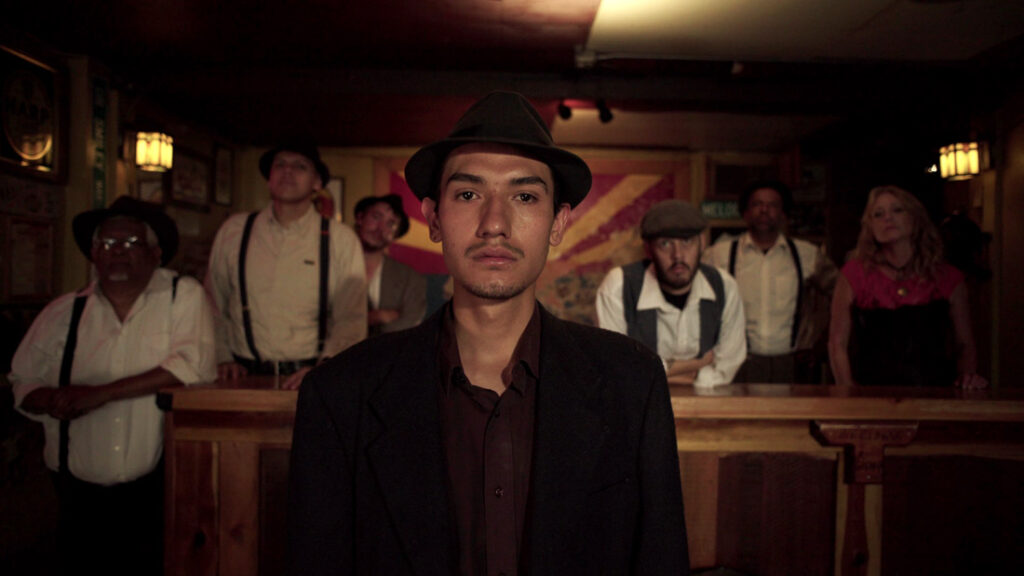Robert Greene’s beautiful and haunting new film tells a story that isn’t often taught in history classes, not even in the city in which it took place, but it couldn’t be more resonant an entire century later. There are a great number of films this year that were clearly chosen because of how they comment on the incredibly complex current cultural moment (“The Tale,” “Blindspotting,” “Sorry to Bother You,” more), but there’s something about “Bisbee ’17” that feels especially resonant given the way it addresses facing our dark pasts to achieve a more empathetic present. As he did in “Actress” and “Kate Plays Christine,” Greene plays with the form of non-fiction filmmaking, weaving interviews with recreations being staged by the people of the town of Bisbee, Arizona. The result is a lyrical, powerful piece of work that will certainly stand among the best documentaries you’ll see this year.
In 1917, Bisbee, Arizona did something absolutely horrific: 1,200 striking miners were rounded up from their homes at gunpoint, put on cattle cars, and taken out to the middle of the desert, where they were left to die. The workers had been threatening one of the most vibrant mining towns in the country, and the company wasn’t going to let them disrupt the system. So, they put their lives in danger, running them out of town at gunpoint. And, of course, many of these men were migrant workers from across the close-border with Mexico or other regions.
In 2017, Bisbee, Arizona hasn’t really addressed this pitch-black chapter in their history. The people who remained in Bisbee were allowed to craft the narrative and they either buried it completely or rewrote it as a necessary sin. It’s fascinating to hear a person who describes himself as a “company man” continue to defend the deportation because of the stories his grandfather told him. The men were told to go back to work, and they didn’t. They lost the right to be in Bisbee. There are others who have tried to keep the story alive, so people can learn from it, but it’s the arrival of the anniversary and Greene’s film that really stirs up the ghosts in Bisbee. He interviews a few local experts, but his masterstroke is the way in which he stages recreations of what happened in 1917 using the townspeople of 2017, letting their personal stories and impressions of the deportation influence the recreations.
One in particular, a young man named Fernando Serrano, is simply unforgettable. He didn’t know about the deportation, and he ends up playing a major role in the recreation. You can see him go from a relatively average young adult to someone bearing witness to history and realizing its relevance to present day. His eyes are unforgettable; it’s impossible to miss what looks like sadness creep into them—especially when he’s relaying the parallel to the fact that his mother was deported when he was young, missing most of his childhood—and then they turn to something akin to righteous anger. In a way that it feels like only Greene could pull off, “Bisbee ’17” kind of becomes an essay on education—and there are a lot of us who could use some of that.
And, of course, that anger, while never being explicitly stated, is a commentary on our current situation, not only for worker’s rights and the danger of protest, but Trump’s war on immigration and the daily stories about ICE literally rounding up people who have been here for decades. And Greene uses his form-breaking approach to amplify the relevancy without ever saying the name of our 45th President. For example, he’ll include footage of a woman listening to interviews she did about the Bisbee Deportation in various locations around town. It is process (the interview) placed within explicit process (kids nearby ask if they’ll be in the film). Life is still going on. The past is layered on the present.
Finally, “Bisbee ’17” is Greene’s most gorgeously shot and edited film to date, striving for and achieving a lyrical blend of memory and reality. There are several compositions, particularly a song Fernando sings straight to camera, that are simply breathtaking. I found myself deeply and emotionally engaged in how this small town is reconciling their past in order to achieve a greater future, and hopeful that the rest of us can do the same. It’s a very rare documentary that can be both formally daring and so emotionally powerful as “Bisbee ’17.” The former often leads to a disconnect with the latter—style over substance that disengages the viewer from the emotion of the subject—but Robert Greene achieves something special with “Bisbee ’17,” a movie that feels instantly essential.












